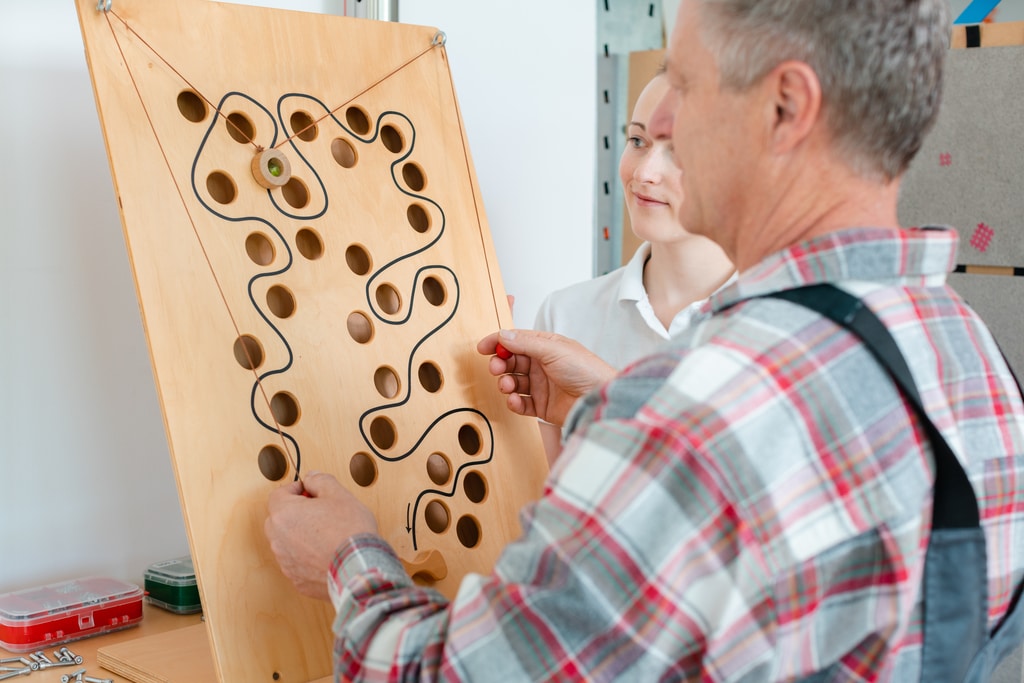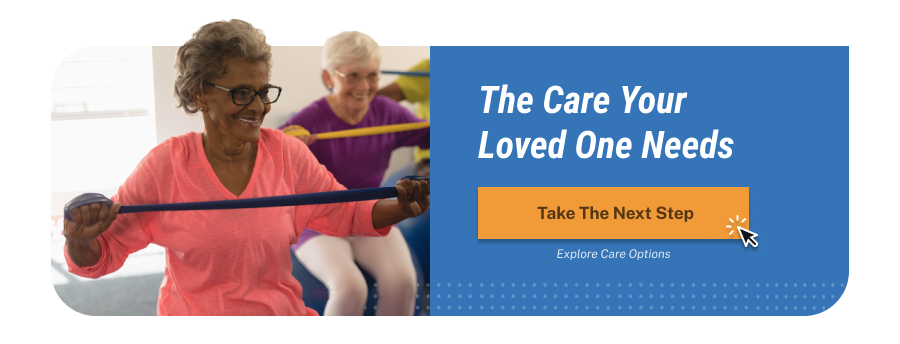Your Guide to Your First Occupational Therapy Session
Occupational therapy is not about training you to do a job.
That’s a common misconception – and it’s likely due to the fact that “occupation” is in the name of the discipline. What occupational therapy does is help you accomplish everyday tasks, usually after an injury, stroke, or joint replacement.
We’ll take a closer look at this discipline and elaborate on what happens during an occupational therapy session and what you do in occupational therapy.
But first, let’s start off by explaining what occupational therapy is.
What Is Occupational Therapy?
Occupational therapy is a type of therapy geared toward helping you overcome any barriers that affect your emotional, social or physical needs. Typically, this means enabling you to return to the tasks of everyday living. For example, an occupational therapist may assist you in learning to tie your shoes or show you how to use adaptive devices to help you brush your teeth.
These are just a few examples of what happens during an occupational therapy session.
How Does Occupational Therapy Help Patients?
What do you do in occupational therapy? You’ll do exercises that help you regain functioning.
Occupational therapy can also help you:
- Develop and refine your fine motor skills, which is especially important after a traumatic injury or stroke.
- Improve hand-eye coordination.
- Relearn tasks of everyday living like bathing, brushing teeth or getting dressed.
- Learn how to use assistive devices to accomplish everyday tasks.
What Happens During a Typical Occupational Therapy Session?
The details of what happens during an occupational therapy session depends upon the extent of your needs. During your first visit, your occupational therapist will speak with you about your goals and what you would like to accomplish during your treatment.
At Brunswick Cove, we encourage all our residents to be active participants in their care. This means working together as a team.
This first session may also involve detailed examinations of your medical chart, any precautions, doctor’s instructions and simple exams to test your complete range of motion and motor skills. This evaluation will help us help you as you progress through your rehabilitation journey.
For example, your therapists may help you develop speaking skills, improve swallowing and help you complete tasks of everyday living.
Next, we’ll look at what you do in occupational therapy.
What Do You Do in Occupational Therapy?
As we discussed earlier, your exact course of treatment depends upon many things, particularly the scope and extent of your injuries and your individual goals.
However, in general, following are some activities you can expect as far as what do you do in occupational therapy:
Use Assistive Devices to Get Dressed
This may include a “grabber” that will be vital in putting on your pants, or a device that makes buttoning your shirt much more manageable. You may even learn to use a “sock helper,” which eliminates the need for bending down to put on socks.
Practice Entering a Shower
Depending upon how your home is designed, you may also need to practice getting in and out of a bathtub. This is an important exercise to help ensure your safety when you return to your own home.
Practice Basic Household Tasks
Most likely, you’ll be doing these from a sitting position, such as on a high stool. You will implement a grabber-type tool to help you reach objects and find more creative ways of accomplishing chores such as dusting.
Brunswick Cove Is The Leading Source of Occupational Therapy Near You in Winnabow, NC
We stand by one simple principle that has guided us since our inception: We treat others the way we would like to be treated. It’s reflected in our mission statement: Compassionate Care with Passion. Some may consider that old-fashioned, but we consider it a hallmark of everything we do. This is why we treat our residents like family—in so many ways, they are.
Occupational therapy can help you return to a greater level of independence. Through our extensive rehabilitation services we provide all you need to help you return to the home you love.
We also offer outpatient therapy services as well. For information, contact our Therapy Director, Jackie Hunter at: jhunter@brunswickcove.com
You may also simply contact us for general information or for a tour.


